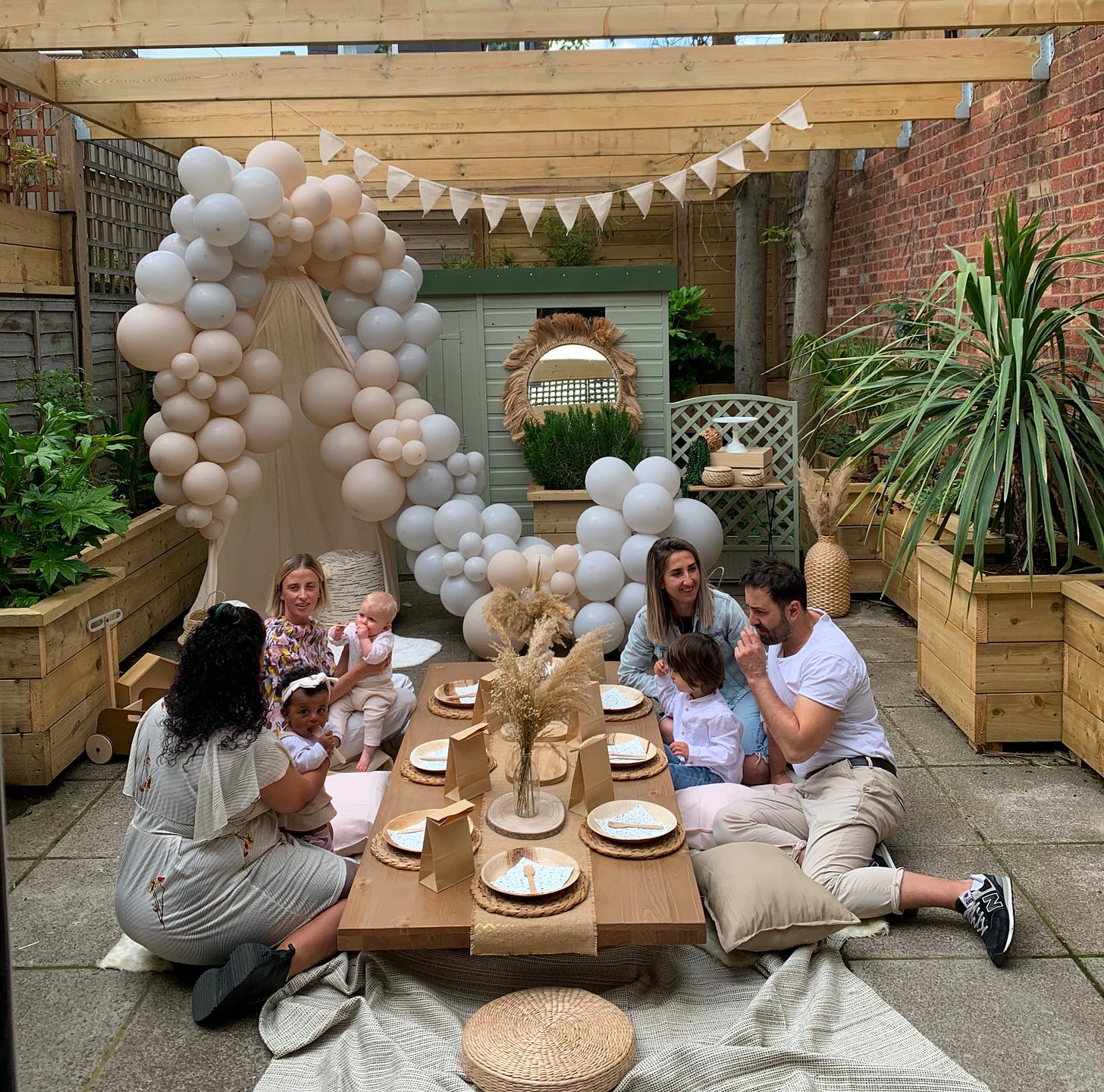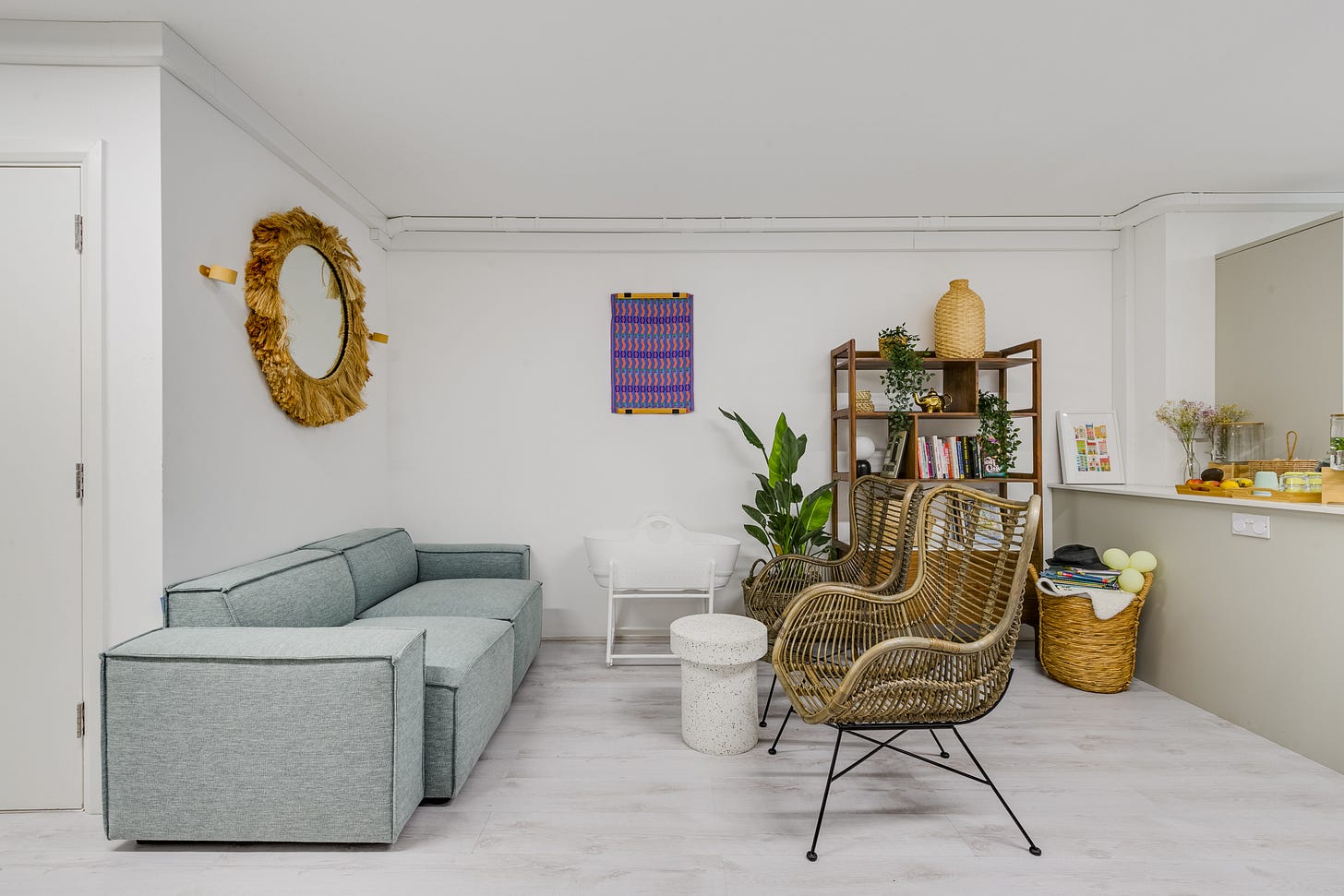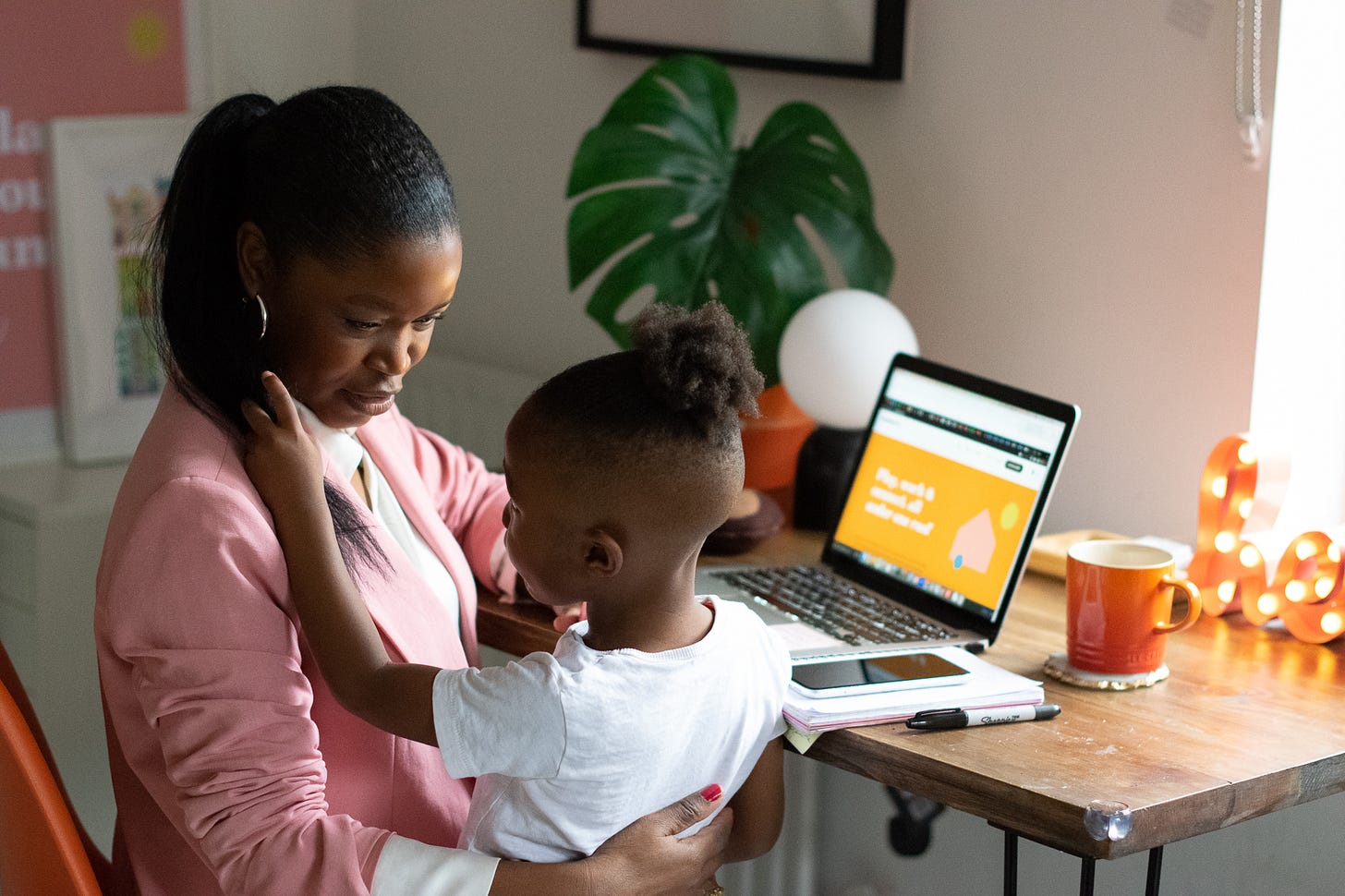Around the time my son turned six months old, I started navigating my neighborhood in a totally different way. I started to see the same people who occupied the same space of the city, connected by the invisible threads of parenthood. Community centers I never noticed before offered a space to play or exchange toys. This gave me a sense of community right when I needed it - when I was navigating a move to a new city, and figuring out my new life, and self, with a baby.
This experience drew me to Kindhaus, a company my firm just invested in. Kindhaus is a business that builds community spaces that combine a creche, coworking space, wellness area and cafe. But this isn’t just another childcare center — it is part of a broader trend in how we use urban spaces.
The British high street is struggling, and I’m conflicted. I love a vibrant high street. I want to be able to buy freshly baked bread and stumble upon those little studio-shops where the artisan is working in the back. But I buy most of my groceries and baby supplies online. With digital commerce and remote work here to stay, and empty storefronts multiplying, we need to reimagine the high street before they all disappear.
Kindhaus represents exactly this reimagining with their three-pronged approach. The model fits what parents want and need today: flexibility, convenience, and community.

Flexible sessions.
Kindhaus is designed around flexibility for parents, who can book creche sessions in blocks as short as three hours. That means you can book a session and run a few errands, or take a class in their wellness room, or stay all day at the coworking space.
The problem with conventional childcare is that customers end up paying for a lot of time they don’t use. For example, at my son’s nursery, we pay for two ten-hour days each week, even though we like slow mornings at home, and never use that first hour. Our nursery bills come in slightly under our mortgage, so it is frustrating when we’re not getting what we pay for. On top of that, it is hard to add or subtract hours. I need to give my nursery two calendar months’ notice to reduce hours – more notice than most employers need to give their staff.
With Kindhaus, parents can choose to return to work gradually, starting a few hours or a few days at a time. This model serves the needs of a dual market: ‘laptop’ workers with extremely flexible jobs, and gig economy workers with low job security who are wary of fixed costs. As work becomes more flexible and remote, and full-time contracts decrease, we need more options like this.
Flexible space.
The founder’s design background shows: Kindhaus creates beautiful spaces.
The cafe, coworking, and fitness areas give parents space to tap into a community. For Kindhaus, that means more revenue streams than a conventional childcare center, driving sustainability of the model while maintaining affordable pricing. I’ve written before about how flexible space can improve services and maintain the local character of a neighborhood, all at lower cost than building new infrastructure. The result feels natural, like those neighborhood cafes that somehow work perfectly for both morning coffee meetings and evening wine. When space is designed thoughtfully, these transitions feel seamless, and each use enhances rather than compromises the others.
Just right community.
Parenthood creates a “vulnerability moment” — a time when people are more susceptible to new connections and routines. Kindhaus provides a foundation for people in this phase by simply bringing people with something in common together, regularly. And that common thread — parenthood — is a time of uncertainty and often struggle. That’s the magic of a vulnerability moment. When you work on a challenge alongside others, and share in the highs and lows that a challenge brings, you supercharge your connection.
I’m finding myself thinking more and more about increasing my “off screen” connections. I like ideas like Kindhaus that create a place to just hang out. A place where conversations are enabled but not required, and loose communities connected by common threads.
This needs impact investing.
Kindhaus won’t be the next unicorn. In the UK, nurseries need at least one childcare employee for every three children in the room. Nurseries nationwide are raising fees or shutting down, families are struggling to afford the childcare rates today, and nursery workers usually earn minimum wage. Technology can’t disrupt that 1:3 ratio. But technology can smooth operations and enable flexible booking to ensure capacity is being used. And flexible booking can make childcare more affordable, because parents only pay for what they use. These innovations, alongside a physical space that works around the clock, create a good, repeatable business model. A business model that needs patient, values aligned capital. We’re working with Kindhaus over the long term to:
Create stable, living-wage jobs for carers of children.
Support women’s workforce participation and wealth creation.
Target areas of high inequality and make childcare accessible to underserved communities.
Build neighborhood infrastructure that serves multiple needs.
We’re betting flexible work is here to stay. One of the biggest risks I see is the idea being too successful. A Kindhaus at 100% capacity, booked in advance, pushes out the flexibility so integral to the model. Sometimes spaces need a little slack to function well, like the joy I experience when a flight takes off and I realise the seat next to me is empty. The team is thinking about how to build a profitable business with enough slack to keep customers delighted.
By creating spaces that adapt throughout the day—from morning childcare to afternoon workouts to evening community events—Kindhaus isn't just solving the childcare crisis. It's showing how we might save our high streets and build the kind of dense, connected communities we need to thrive.
Thank you Ann-Marie for sharing your vision, and
for the editing support on this post.




Melissa, this articulation of "vulnerability moment" is superb. Is this a widely known model or something that you've coined? It's exceptionally useful in considering how to build community, but also in identifying worthwhile business opportunities.